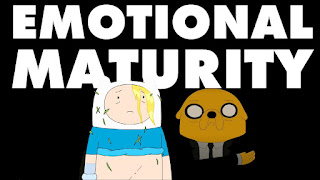(image: youtube.com)
Magbinata pa bisan tiguyang na…
When
justifications are made, it must be consistent to the main subject and are not
anchored on emotions. People who are reactive would lead to NOT understanding
themselves. Reflections and self-assessment are always encouraged to attain
maturation.
Behavioral
development is focused on cognitive and emotional development, skill
acquisition, atypical behavior development/reduction, socialization, education,
and language development. It looks at the role of biological and environmental
variables that affect behavior development, with a primary interest in the role
of reinforcement and environmental contingencies that influence behavior change
(Roane, 2024).
Why
is it that there are those people who has behavioral development deficits?
Conflict will often occur with social interactions in personal and professional
settings when emotional immaturity occurs.
Daniel
Goleman, who popularized the term "emotional intelligence" in his
ground-breaking book Emotional Intelligence, identified five key aspects of the
skill: self-awareness, self-regulation, motivation, empathy and social skills.
Self-Awareness
is understanding and recognizing your own emotions. This goes beyond correctly
identifying your feelings.
Self-regulation
essentially means finding the right time, avenue and place to express your
emotions.
Emotionally
intelligent motivation refers to a sense of being motivated by enjoying what
you do, consistently working toward goals and setting high standards for
yourself, even when surrounded by obstacles.
Empathy:
The ability to put yourself, emotionally, into another person’s situation is a
critical component of emotional intelligence.
In
the context of emotional intelligence, social skills refer to your
communication skills, conflict management, rapport building and your ability to
be a good team-player.
In
the end, it is the person inside who will monitor and decide if the inner self
embraces maturation. If not, the child inside will always rear its immature
head.




